Iran Foreign Ministry spokesman says Vienna talks on JCPOA revival approaching final stage
The Iranian Foreign Ministry spokesman says the delegations in Vienna talks are reaching the final stage of the negotiations, which are aimed at reviving the 2015 Iran nuclear deal with world powers that was thrown into a state of limbo after US illegally withdrew from the accord and Tehran took remedial measures to reduce its commitments as per the agreement.
“In short, in view of the progress made thus far, it could be said that we are approaching the end of the Vienna talks. There are certain outstanding issues, but the important point is that issues resolved so far outweigh those that remain unresolved,” Saeed Khatibzadeh told reporters on Monday.
“We have come a long way so far, but the rest of the way is not going to be an easy path,” he added.
The US, under former President Donald Trump, left the multilateral nuclear deal, officially called the Joint Comprehensive Plan of Action (JCPOA), in 2018 and initiated a “maximum pressure” campaign of tough economic sanctions against Iran, prompting Tehran to take remedial measures by gradually reducing its nuclear commitments under the deal.
The remaining parties to the JCPOA -- France, Britain, Germany, Russia and China -- have been engaged in talks in the Austrian capital since early April with the aim of reviving the nuclear agreement, by bringing all original parties, especially the US, back into compliance with the deal, three years after Washington withdrew from the accord and tried to sabotage it.
The sixth in-person round of the negotiations in Vienna came to an end on June 20, two days after Iran’s presidential election that resulted in the victory of Ebrahim Raeisi.
Iran has already announced that the country’s stance on the JCPOA “will not alter with a change of administration.”
“We hope the other parties [to the JCPOA] would be able to make their decisions. In that case, we would achieve an agreement, which would be desirable for all,” the Iranian Foreign Ministry spokesman said.
Khatibzadeh added that all participating delegates believe that good advances have been made in the talks, “but they are also in agreement that some key issues must be first dealt with by higher authorities in their respective countries.”
“The consensus in our country is that firstly, the US sanctions must be removed in a verifiable way and secondly, demands outside the JCPOA’s framework have nothing to do with this deal. It has been said [by Iran] time and again that as soon as the nuclear agreement is implemented in full [by other parties] and this is verified, the Islamic Republic of Iran will restart full implementation of its commitments,” the Foreign Ministry spokesman said.
He added that Iran’s position has not changed since the commencement of the talks in Vienna.
“We demand the removal of sanctions followed by verification before our country restarts fulfilling its commitments. On the other hand, the United States as the violator of the JCPOA, must give necessary assurances [that it will not leave the deal again],” Khatibzadeh said.
Iran’s top negotiator to Vienna talks said late last month that Tehran has already made its tough decision to save the agreement and it is now time for the other parties to act similarly for the accord.
“The Islamic Republic of Iran has already made its tough decision. When the United States quit the JCPOA and Iran decided to stay in it, this was Iran’s big and tough decision, which has kept the JCPOA alive up to the present,” said Abbas Araqchi, who is also Iran’s deputy foreign minister for political affairs.
US’ ‘maximum pressure’ policy has failed
Reflecting on certain speculation about a possible change in the US’ sanctions policy against Iran under the administration of President Joe Biden, Khatibzadeh said, “The failure of the ‘maximum pressure policy’ has become evident to experts since a long time ago. This policy has not reached any of its goals.”
“During the past four decades, various governments in the United States have imposed a vast spectrum of sanctions against Iran, but in reality and based on confessions by Americans officials, this country has failed to achieve its goals through sanctions and has got nowhere so far,” he added.
‘European Parliament’s resolution clear interference in Iran’s affairs’
In his Monday remarks, the Iranian spokesperson also "strongly condemned" a recent resolution by the European Parliament against the Islamic Republic and its imposition of sanctions on the country's officials.
"This resolution lacks validity and is basically unacceptable and is a clear example of interference in Iran's internal affairs," Khatibzadeh said.
He expressed regret that the European Parliament, which claims to advocate the Iranian people's rights, has maintained "meaningful silence" on the US economic terrorism against Iranians and the killing of innocent people in Yemen and Palestine.
"The European Parliament must end using human rights as a tool and adopt a balanced and wise stance vis-à-vis the Islamic Republic of Iran," Khatibzadeh pointed out.
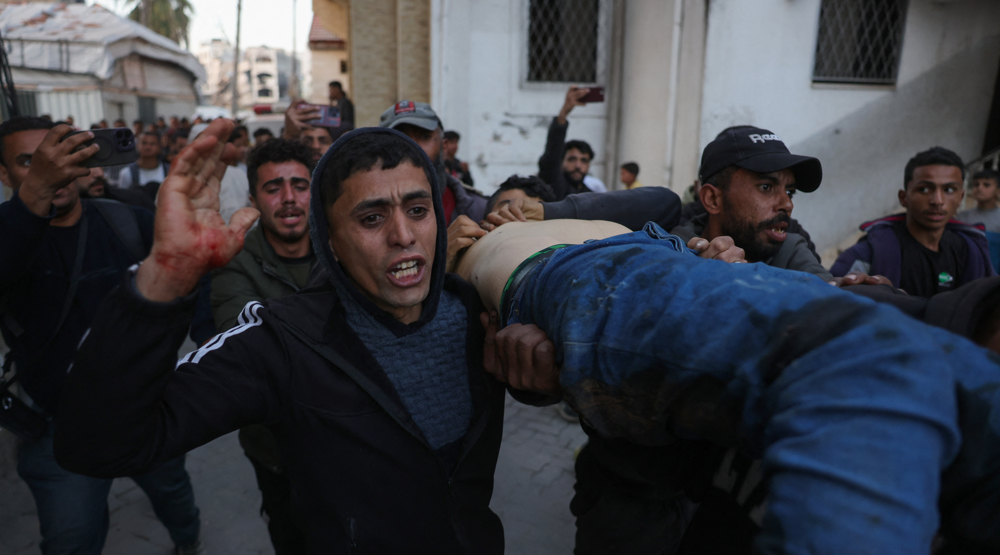
Iran condemns Israeli war crimes in Gaza, West Bank
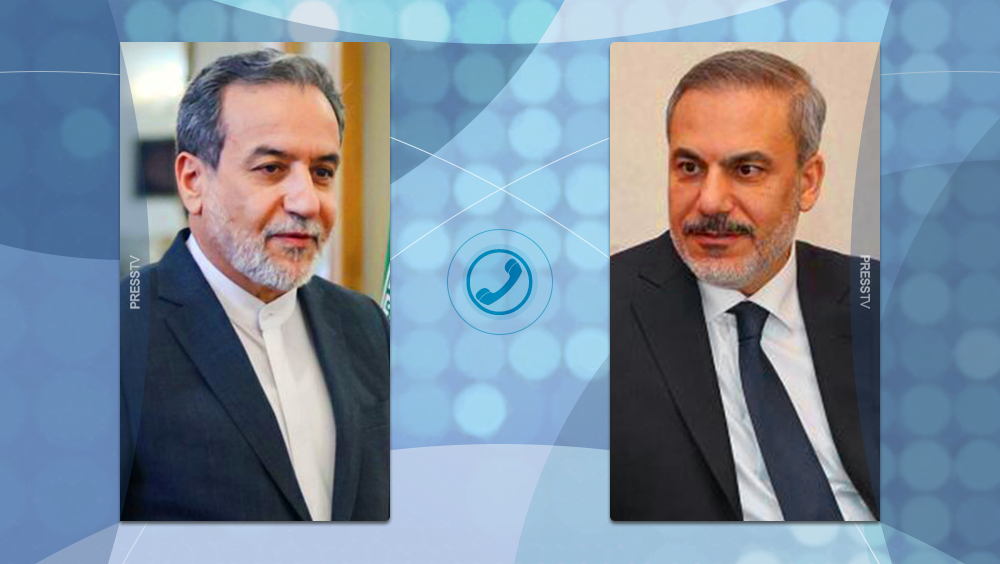
Iran, Turkey foreign ministers discuss Muscat talks, other regional issues
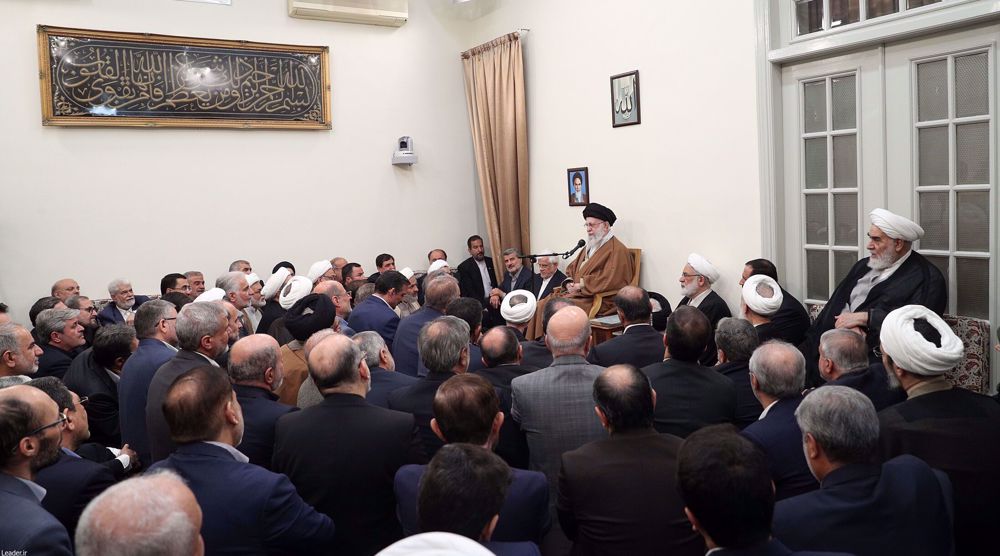
Leader: Indirect Oman talks ‘good’ in early stages but lack of trust 'remains' about other side
Ahmad Manasra and the Israeli military machinery prosecuting Palestinian children
Iran’s enrichment ‘non-negotiable’, talks fruitless under pressure: FM
Pentagon officials placed on leave over 'unauthorized' Yemen leaks
Photojournalist killed in Israeli bombing of family home in Gaza
China says 'not afraid to fight' trade war with US
VIDEO | Press TV's news headlines
Iranian hospital uses angiography for brain vascular treatment without surgery
US to press EU to pull away from China in return for tariff cuts: Report


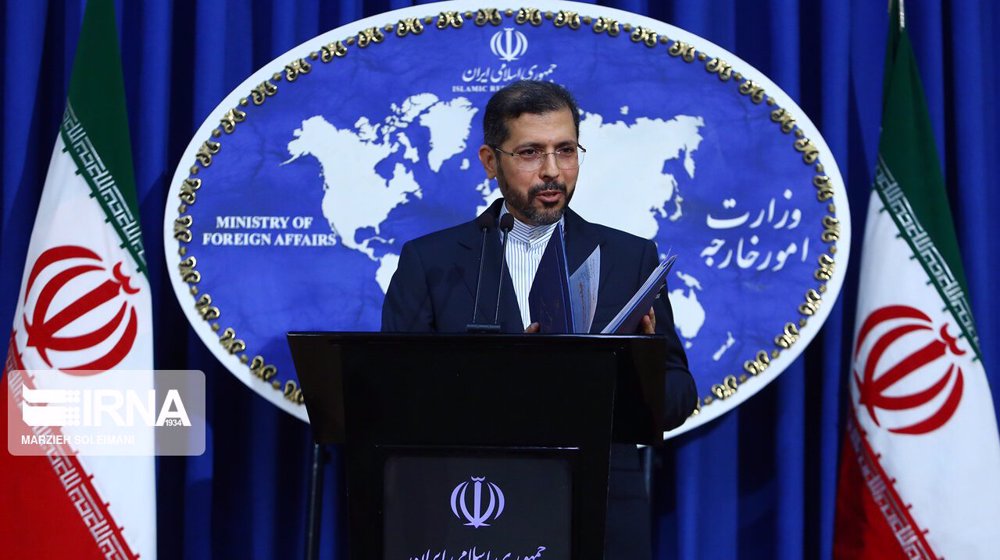
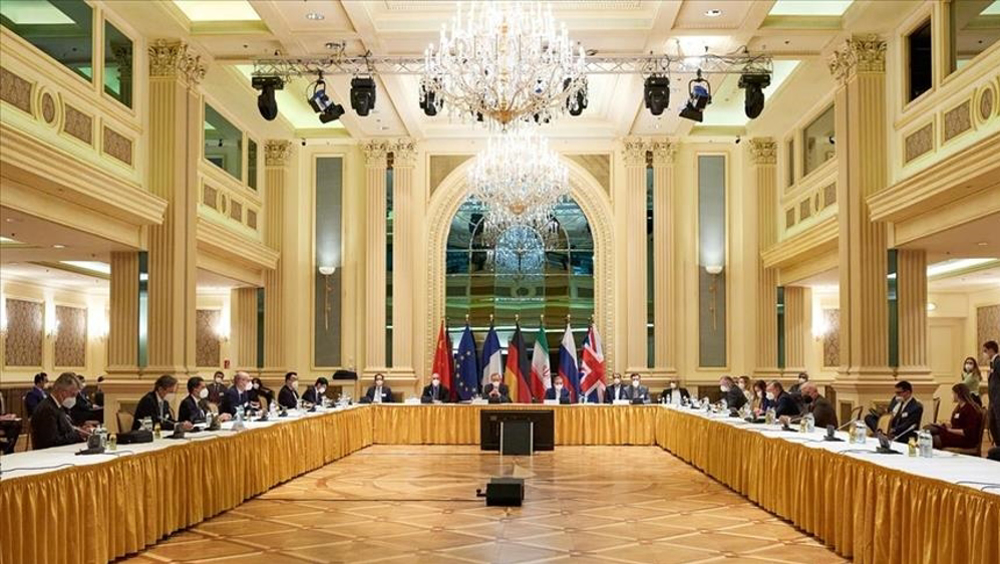
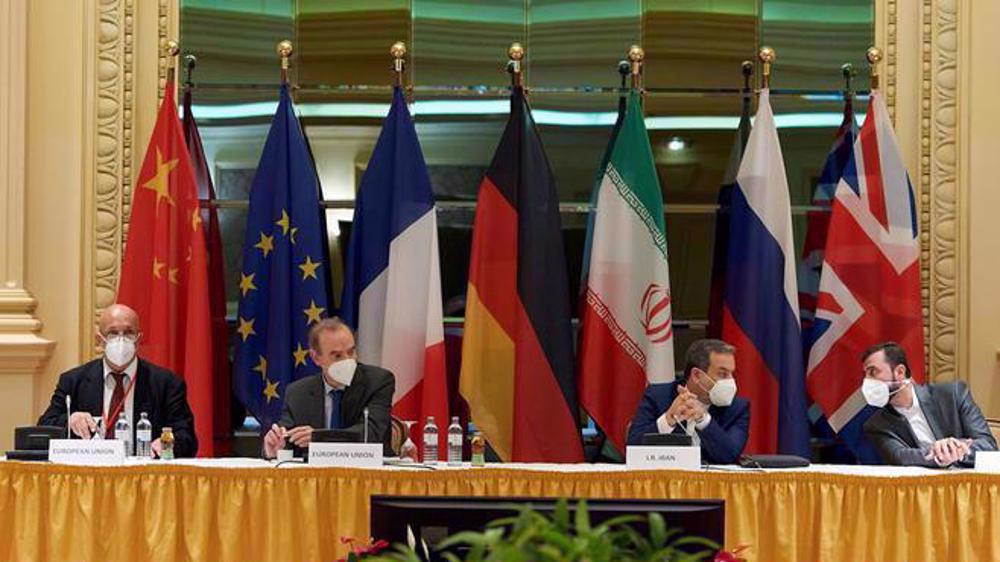
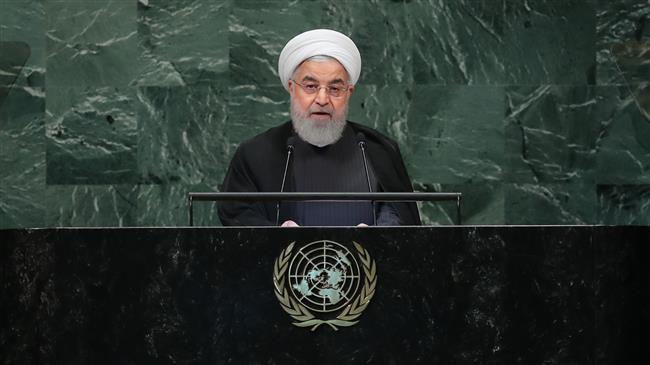




 This makes it easy to access the Press TV website
This makes it easy to access the Press TV website